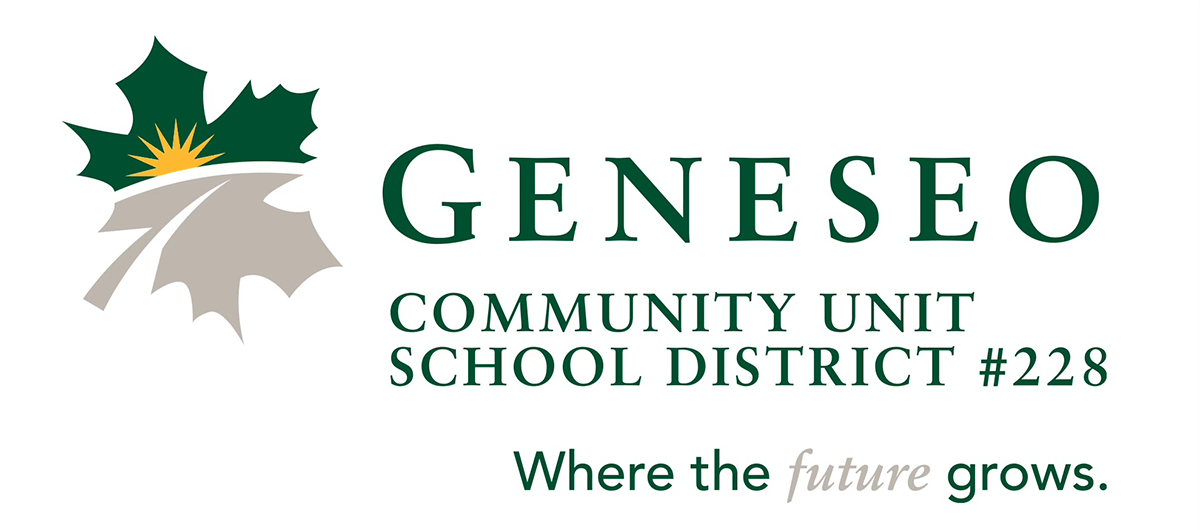Privacy Policy
The following states the privacy policy of Geneseo Community Unit School District 228 regarding the privacy rights of the visitors and users of the District 228 web sites. We respect your concern over your right to privacy and for a secure online experience.
By accessing www.geneseoschools.org and its affiliated websites, you are accepting the practices described in this Privacy Policy.
Information Collected at www.geneseoschools.org
We receive and may store any information you enter on our Site or give us in any other way. At times, we specifically ask for information about you when you register for or to use certain services or functionalities. We may require certain information - such as name, Internet address or screen name, mailing address, phone number, etc - in order to provide that service or functionality to you.
Does District 228 Share the Information it Receives/Collects?
District 228 may use reputable third parties to manage activities available on our Site such as web hosting, database management, and application processing. These parties may have access to personally identifiable information submitted by visitors and/or users as a result of these activities. District 228 instructs these third parties to use personally identifiable information only for the specific purpose for which it is collected, and not to sell, market or transfer such information to other entities except as needed to provide the designated services.
District 228 posts and displays certain personally identifiable information about its employees, administrative staff and committee members on our Site. District 228 allows users to post certain information about themselves in certain areas of the Site.
District 228 may use personally identifiable information in aggregate form to make our Site better and more responsive to the needs of our users and visitors. This statistical compilation and analysis of information may also be used by District 228 or be provided to others, in an aggregate format, for marketing, educational, quality control or research purposes.
We release account and other personal information when we believe its release is appropriate to comply with any law; enforce or apply our Terms of Use and other applicable agreements; or protect the rights, property, or safety of District 228, our employees, our representatives, or others.
This includes exchanging information with other companies and organizations for fraud protection.
How Secure Is Information About Me?
District 228 maintains appropriate safeguards to ensure the security, integrity and privacy of personally identifiable information submitted to our Site, and periodically reviews and updates its security measures in light of current technologies. Unfortunately, no data transmission over the Internet can be guaranteed to be 100% secure. Although District 228 strives to protect your personal information, we cannot ensure or guarantee the security of any information you may transmit to us or from our online products and services. Once we do receive your transmission, however, we make our best effort to ensure its security on our systems.
About Children and Internet Safety
District 228 is concerned about the safety of children when they use the Internet. Pursuant to the Children’s Internet Protection Act (CIPA) of 2001, District 228 will never knowingly request personally identifiable information from anyone under the age of 13 without prior verifiable parental consent. CIPA mandates that filtering is in place to block offensive content on school and library computers, including obscene pictures, pornographic images and content harmful to minors.
District 228 follows the guidelines of Illinois Public Act 095-0869 regarding Internet Safety Curriculum. This law states that: “Beginning with the 2009-2010 school year, a school district must incorporate into the school curriculum a component on Internet safety to be taught at least once each school year to students in grade 3 or above.”
The following areas are covered:
Safe and responsible use of social networking websites, chat rooms, electronic mail, bulletin boards, instant messaging, and other means of communication on the Internet.
Recognizing, avoiding, and reporting online solicitations of students, their classmates, and their friends by sexual predators.
Risks of transmitting personal information on the Internet.
Recognizing and avoiding unsolicited or deceptive communications received online. Recognizing and reporting online harassment and cyber-bullying.
Reporting illegal activities and communications on the Internet. Copyright laws on written materials, photographs, music, and video.
